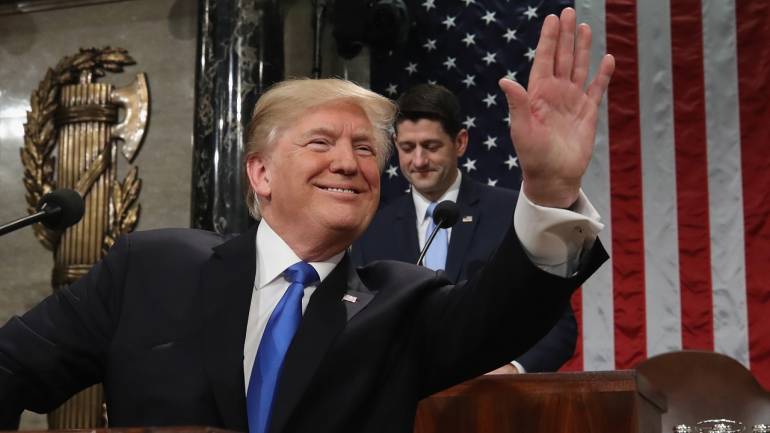Early this week, the US Trade Representative (USTR) announced an initial proposed list of Chinese goods that could be subject to additional tariffs.
US President Donald Trump, who has sought to impose USD 150-billion worth of import tariffs on Chinese products, is taking actions to address China's "unfair trade practices", the White House said today.
Early this week, the US Trade Representative (USTR) announced an initial proposed list of Chinese goods that could be subject to additional tariffs.
The Trump administration "is taking actions to address China's unfair trade practices, including the forced transfer of United States technology and theft of US intellectual property," the White House said.
Trump's trade actions are a response to years of unfair trade practices by China that have gone unaddressed.
The initial list included approximately 1,300 tariff lines valued at an estimated USD 50 billion. The list will now undergo an extensive public comment period and public hearing.
Once this process is complete, the USTR will make a final determination on the proper response.
"In order to develop the initial proposed list, the USTR worked with other agencies to identify products that unfairly benefit from China's industrial policies. There was extensive interagency analysis to ensure these tariffs maximise pressure on China to change its behaviour, while minimising the impact on the US economy," the White House said.
Instead of addressing its misconduct, China has retaliated against American farmers and manufacturers, the White House alleged.
"President Trump has therefore directed the USTR to determine if an additional USD 100 billion worth of tariffs would be appropriate under section 301. Any additional tariffs would be subject to a similar review and public comment period as the initial list," the White House said.
Noting that Trump has instructed the Secretary of Agriculture to use his broad authority to implement a plan to protect American farmers and agriculture, the White House said that in addition to this week's tariff announcements, the USTR has initiated a WTO dispute against China for its unfair practices, is examining potential restrictions on Chinese investment, and is working with allies also affected by China's unfair behaviour to restore fairness to global trade.
"Year after year, China continues to distort global markets and harm US businesses and consumers with unfair trade practices," the White House alleged.
For example, China's unfair industrial policies, like 'Made in China 2025' policy initiative, clearly state China's goal of taking away domestic and international market share from foreigners. Members of all political parties, the US business community, and workers around the world are concerned about China's behaviour, it said.
The White House said Trump has made it clear that the US can no longer tolerate such behaviour and he is following through on his pledge to take actions to ensure China finally plays by the rules.
"While previous administrations let China's actions go unanswered, President Trump is standing up for American workers to ensure that American businesses are treated fairly and lawfully," the White House said.
Asserting that Trump is for free trade which must also be fair trade, the White House said that addressing unfair trade practices and ensuring that global trade is free, fair, and reciprocal will have a significant positive long-term impact on the US economy.
"The administration's responsive actions follow an extensive investigation by the USTR, which revealed how China's unfair policies and practices are harming American commerce. An inter-agency analysis concluded that these policies and practices cause at least tens of billions of dollars in damages to the US every year," it said.
The White House statement came as several US lawmakers criticised Trump for his anti-China measures, asserting that this would harm American economy and industry.
"Escalating the potential of a trade war with China is reckless and it gambles the livelihoods of US farmers and ranchers across rural America. Sixty per cent of North Dakota's exports to China are agricultural products. China's unfair trade policies need to be reined in but this isn't the way to do it," said Senator Heidi Heitkamp.
Virginia Senators – Mark Warner and Tim Kaine - raised concerns after Virginia's Department of Agriculture and Consumer Services confirmed that proposed tariffs could hurt Virginia businesses and employees, as China is its biggest export market for agricultural goods.
In retaliation, China said it was considering raising tariffs on soybeans, beef and other critical agriculture commodities produced in Virginia in response to President Trump's proposed tariffs.
"President Trump should be making it easier for Virginia farmers and families to get ahead, not driving us head-first into a harmful trade war," the Senators said.